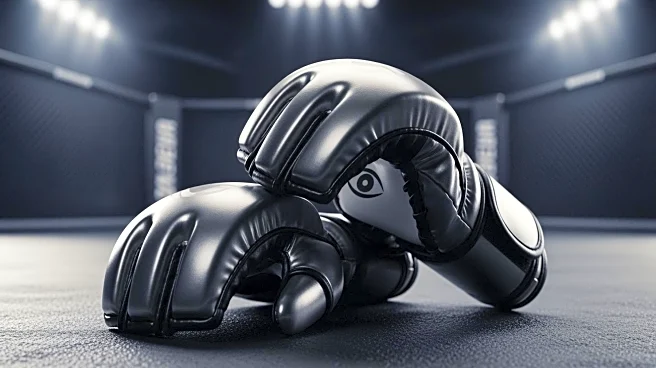What's Happening?
Tom Aspinall's decision to stop his title defense fight at UFC 321 after an eye poke from Ciryl Gane has sparked debate among UFC veterans. The fight ended in a no-contest after Aspinall claimed he couldn't see, leading referee Jason Herzog to halt the
match. Former UFC title challenger Chael Sonnen and analyst Anthony Smith questioned Aspinall's choice, suggesting that fighting with impaired vision is common in the sport. Sonnen noted that Aspinall might have faced a tougher fight than expected, as Gane was gaining momentum before the stoppage. The incident has led to mixed reactions, with some defending Aspinall's decision while others criticize it.
Why It's Important?
The debate over Aspinall's decision highlights the intense pressure fighters face to continue matches despite injuries. It underscores the cultural expectation within MMA to push through adversity, even when health is at risk. The situation also raises questions about the adequacy of current rules regarding eye pokes and the role of referees in ensuring fighter safety. The incident could influence future discussions on fighter welfare and the balance between competitiveness and health in the sport. Aspinall's decision may impact his reputation and career, as well as the dynamics within the heavyweight division.
What's Next?
Aspinal may face criticism and scrutiny from fans and analysts, affecting his public image and career trajectory. The UFC might consider reviewing its regulations on eye pokes and fighter safety to prevent similar incidents. Discussions within the MMA community about the expectations placed on fighters to continue despite injuries could lead to changes in how matches are conducted and assessed. Stakeholders, including UFC officials and fighters, may advocate for more stringent health checks and clearer guidelines to protect athletes.
Beyond the Headlines
The incident raises ethical questions about the responsibility of fighters and referees in ensuring safety during matches. It also highlights the cultural aspect of MMA, where toughness and resilience are highly valued, sometimes at the expense of health. The long-term implications for Aspinall's career and health remain uncertain, as eye injuries can have lasting effects. The situation may prompt broader discussions about the role of medical professionals in assessing fighter readiness and the potential need for more stringent health checks.
















